What is most needed today is unity, which puts partisan interests above all else
The Pope to the Young Priests and Monks of the Oriental Orthodox Churches
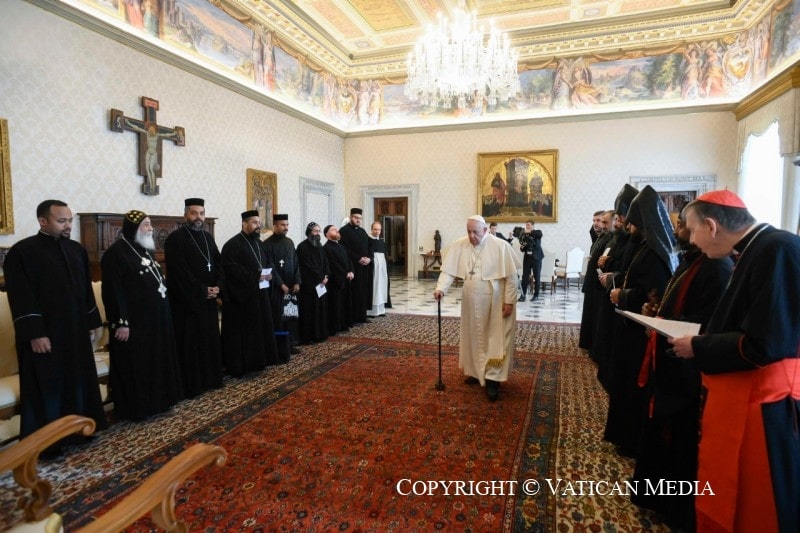
This morning, the Holy Father Francis received in Audience the young priests and monks of the Eastern Orthodox Churches.
We publish below the speech that the Pope addressed to those present during the Audience:
Address of the Holy Father delivered
Dear brothers,
I greet you with joy in the Lord. I am pleased to receive you for the third edition of this fine initiative that enables young priests and monks of the Oriental Orthodox Churches to visit Rome. This year you have come at the beginning of Lent, a journey that Christians make in preparation for the paschal mystery of Christ, the heart of our faith. I think of another journey, which two disciples made together with the Risen Lord on the very day of Easter (cf. Lk 24:13-35). That journey to Emmaus can symbolize in some way the ecumenical journey of Christians towards full communion. I see certain elements that those two journeys have in common, three of which I would like to share with you today.
The first is that, if Christians walk together, like the two disciples of Emmaus, they will be joined by Christ. He will accompany, inspire and bring to completion their journey. Along the way, Jesus approached the two disciples, who were distraught and bewildered; unrecognized, he walked beside them and shared in their journey, which then became a pilgrimage. Their sorrow and distress prevented them from recognizing him (cf. v. 16); and in a similar way, discouragement and self-concern can prevent Christians of different confessions from seeing what unites them, from recognizing Christ who unites them. So, as believers, we need to trust that the more we walk together, the more we will be mysteriously accompanied by Christ, for unity is a shared pilgrimage.
The Evangelist tells us that those two disciples were “talking with one another about all the things that had happened” (vv. 14-15). Here is the second element, which is dialogue: the dialogue of charity, the dialogue of truth and the dialogue of life, the three dimensions indicated by the Ecumenical Vademecum issued by the Dicastery for Promoting Christian Unity. Dialogue between the pilgrims of Emmaus led to dialogue with Jesus, who became its “exegete”; interpreting their discussions, Christ spoke to their hearts, gave them hope and set them afire as he explained in the Scriptures all the things that referred to him (cf. v. 27). Here we can see how dialogue between Christians has to be grounded in the word of God, which the Lord Jesus makes us understand by the light of his Spirit.
To journey together as pilgrims and to dialogue; we now come to the third element. The Evangelist tells us that when the disciples drew near to Emmaus, Jesus “walked ahead as if he were going on” (v. 28). The Lord did not impose his presence, the disciples begged him to remain: “Stay with us, because it is almost evening and the day is now nearly over” (v. 29). They wanted to be together with Christ. They did not go off, each to his own home, but desired to prolong their fellowship with Jesus and with one another. They urged him; they kept insisting. This is the third element: we need to desire unity with prayer, with all our heart and strength, insistently and tirelessly. For if the desire for unity fades, it is not enough to pursue dialogue: everything turns into a formality, into something expected. If, on the other hand, we desire to open the doors to Christ together with our brothers and sisters, everything changes. Scripture tells us Jesus did not break bread with disciples who were defeatists and divided; they had to invite him in, to welcome him, to desire him together. This is perhaps what is today most lacking to Christians of different confessions: an ardent desire for unity, which can prevail over partisan interests.
Dear brothers, unity is pilgrimage; unity is dialogue; unity is desire. If we experience these three dimensions on the journey of ecumenism, then, like those disciples, we will come, together, to recognize Jesus in the breaking of the bread and benefit from fellowship with him at the same Eucharistic table (cf. vv. 30-31). And like the two disciples of Emmaus who raced back to Jerusalem to tell the others with joy and amazement what they had experienced, we too will be able to bear credible witness to the crucified and risen Lord, “so that the world may believe” (Jn 17:21). Dear brothers, you undertook a journey to come here. I thank you for this. During this, your pilgrimage to Rome, I hope that you will experience the living presence of the risen Lord, so that our communion may increase in fraternal dialogue, and that a fervent desire for unity may be renewed in each of you.
May the Lord bless you and the Mother of God watch over you. I ask you kindly to convey my greetings to your Bishops and to your Churches. One of you comes from deeply afflicted Syria; I would like to express a particular closeness to that dear people, sorely tried not only by war but also by the earthquake that, as in Turkey, has caused so many deaths and terrible devastation. Before the suffering of so many innocent people, children, women, mothers and families, I express my prayerful hope that everything possible will be done for every person, without motivations or sanctions that prevent the provision of urgent and necessary assistance to the population.
Dear brothers, I thank you and I assure you of my prayers. I ask you, please, not to forget me when you speak to the Lord. If it is agreeable to you, we can now pray together, each in his own language, the Our Father.
Related
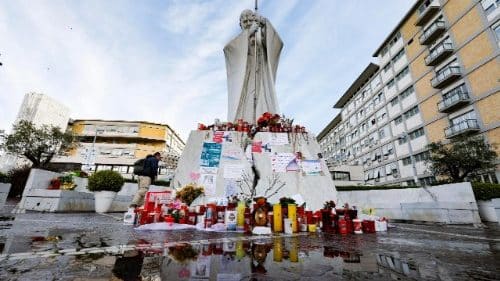
Pope Francis spent a peaceful night at the Gemelli Polyclinic
Exaudi Staff
11 March, 2025
1 min
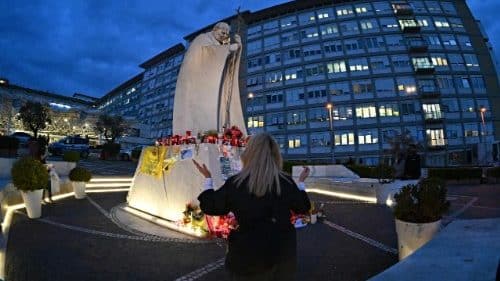
Pope Francis shows stable improvement
Exaudi Staff
10 March, 2025
1 min
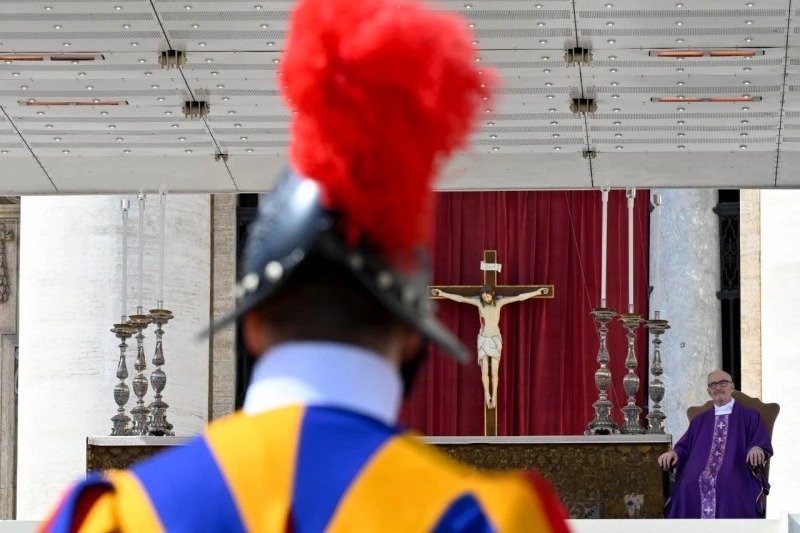
“The Lord is with us and takes care of us, especially in the place of trial”
Exaudi Staff
09 March, 2025
8 min
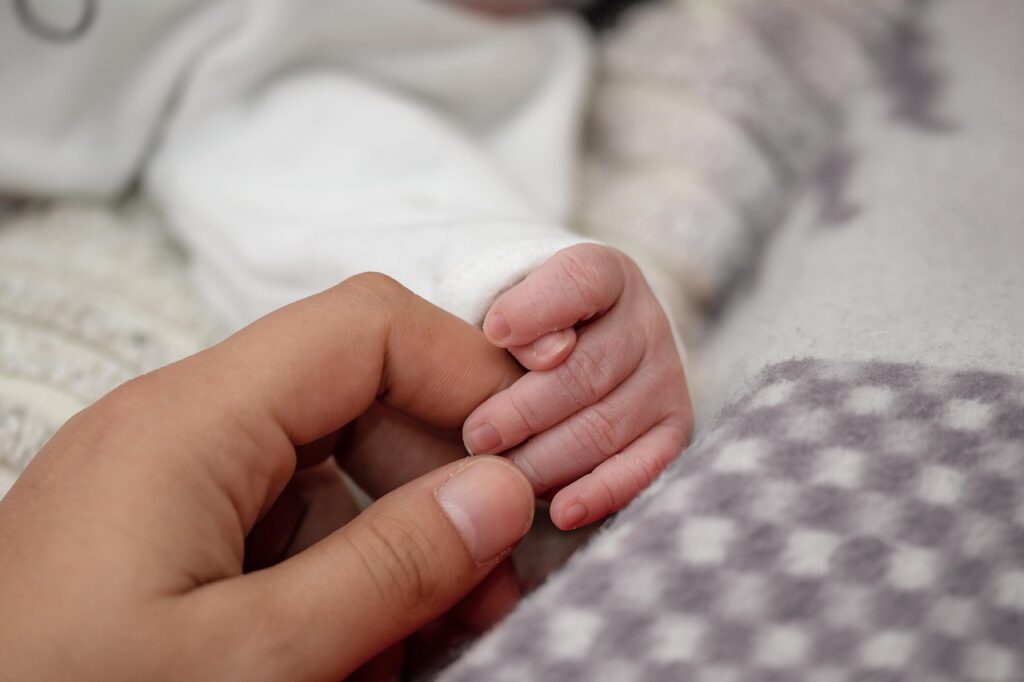
The Pope: We need the “miracle of tenderness”
Exaudi Staff
09 March, 2025
2 min
 (EN)
(EN)
 (ES)
(ES)
 (IT)
(IT)

